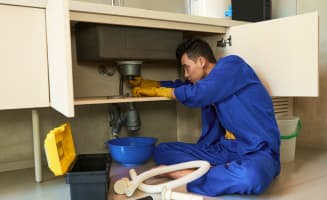Drains play a crucial role in maintaining the hygiene and functionality of any property, whether residential or commercial. Often overlooked until a problem arises, drains require regular care and attention to prevent clogs, leaks, and other issues that can lead to costly repairs and disruptions. In this article, we delve into the importance of preventative maintenance for drains, particularly focusing on proactive drain maintenance in London by Aquafix Drainage London.
Drains are the unsung heroes of our homes and businesses, silently carrying away wastewater and sewage to keep our surroundings clean and sanitary. However, without proper maintenance, drains can become clogged with debris, grease, and other substances, leading to unpleasant odors, slow drainage, and even structural damage.
Proactive drain maintenance involves regular inspections and cleaning to identify and address potential issues before they escalate. By staying ahead of problems, property owners can save time, money, and hassle in the long run while ensuring the smooth operation of their drain systems.
Drain systems typically consist of pipes, traps, vents, and fixtures such as sinks, toilets, and showers. Each component plays a vital role in ensuring the proper flow and disposal of wastewater.
Drains rely on gravity to transport wastewater away from buildings and into municipal sewer systems or septic tanks. Proper slope, venting, and trap installation are essential for preventing backups and maintaining optimal drainage.
Drains can be categorized based on their function, location, and materials. Common types include sanitary drains, storm drains, and floor drains, each requiring specific maintenance techniques to ensure their efficiency and longevity.

At DrainCare Solutions, we prioritize the longevity and efficiency of your drainage system through proactive maintenance strategies. Preventative maintenance for drains is not just about fixing issues as they arise but rather about identifying potential problems before they escalate into costly repairs. In this comprehensive guide, we delve into the importance of proactive drain maintenance, its benefits, and actionable steps you can take to ensure the optimal functioning of your drains.
Proactive drain maintenance saves you money in the long run by preventing major repairs and replacements. By addressing minor issues early on, you avoid the need for extensive repairs that can disrupt your daily operations and incur hefty expenses.
Scheduled maintenance allows you to address drainage issues at a convenient time, minimizing disruptions to your business or household activities. Regular inspections and cleaning ensure that your drains remain free-flowing and efficient, reducing the risk of sudden blockages or overflows.
Well-maintained drains contribute to the overall value of your property. Clogged or malfunctioning drains not only pose health and safety hazards but also detract from the aesthetic appeal of your premises. By investing in preventative maintenance, you uphold the integrity and value of your property.
Schedule routine inspections by a qualified drainage specialist to assess the condition of your drains and identify potential issues. Through visual inspections and diagnostic tools, professionals can detect early signs of blockages, leaks, or structural damage.
Routine drain cleaning is essential for preventing the buildup of debris, grease, and other substances that can lead to clogs. Professional jetting and snaking services clear away obstructions and restore optimal flow to your drains, reducing the risk of backups and overflows.
Consider enrolling in a comprehensive maintenance plan tailored to your specific drainage needs. These plans often include regular service visits, emergency support, and discounted rates on repairs or replacements, providing you with peace of mind and long-term cost savings.
Empower users with best practices for drain care to prevent misuse or abuse of the drainage system. Simple measures such as proper disposal of grease, food scraps, and hygiene products can significantly extend the lifespan of your drains and reduce the likelihood of blockages.
Explore innovative drain maintenance technologies such as smart sensors and remote monitoring systems. These tools enable proactive real-time monitoring of your drainage network, allowing you to detect anomalies and address potential issues before they escalate.
Proactive drain maintenance is a vital investment in the longevity and efficiency of your drainage system. By adopting a preventative approach, you can minimize costs, reduce disruptions, and preserve property value while ensuring the uninterrupted flow of wastewater away from your premises. Contact us today to learn more about our comprehensive drain maintenance services and safeguard the health and functionality of your drains.
Maintaining drains is essential for preserving the health, safety, and functionality of any property. By investing in preventative maintenance, property owners can avoid costly repairs, minimize disruptions, and contribute to a cleaner, healthier environment. Whether through DIY efforts or professional services, proactive drain maintenance is a smart investment that pays dividends in the long run.